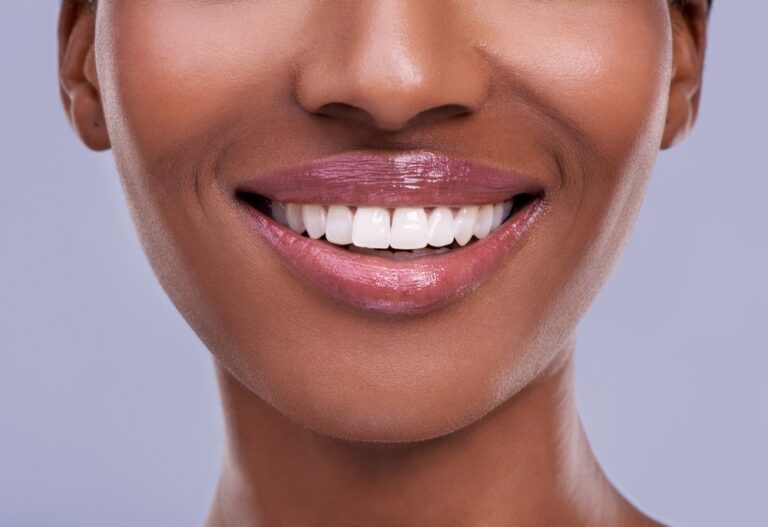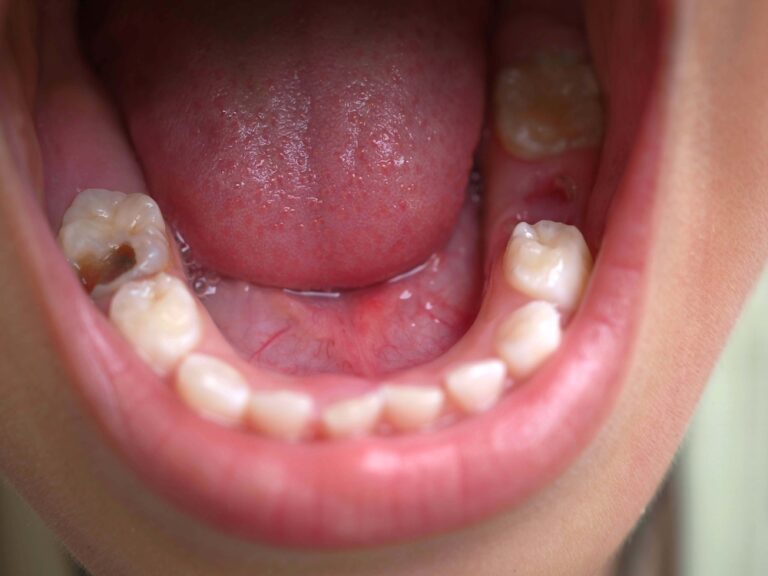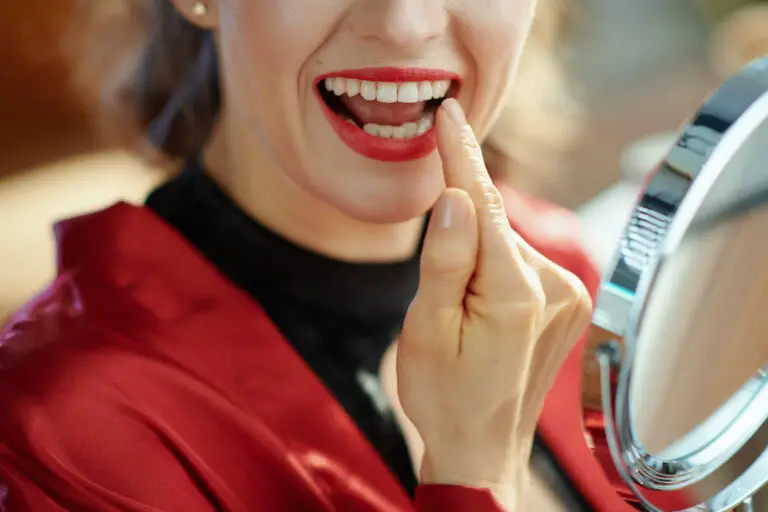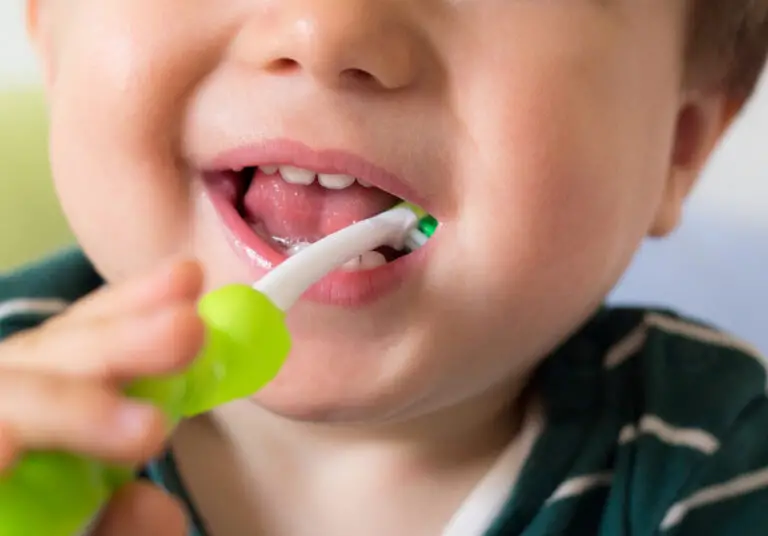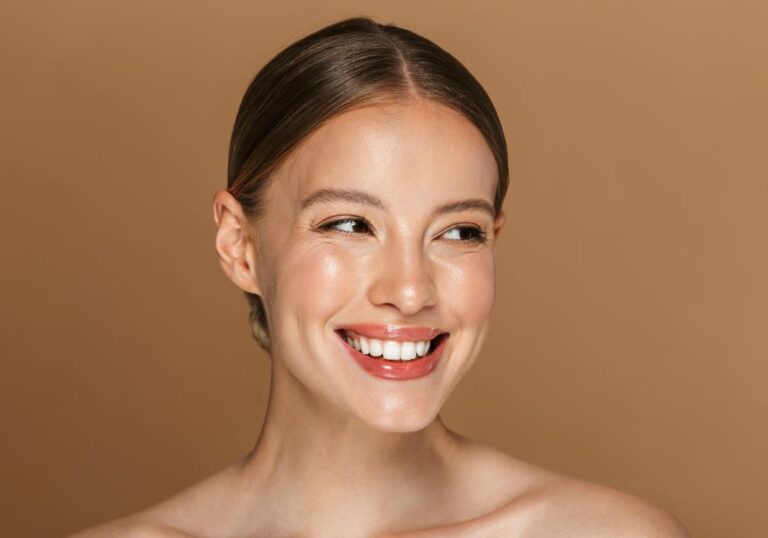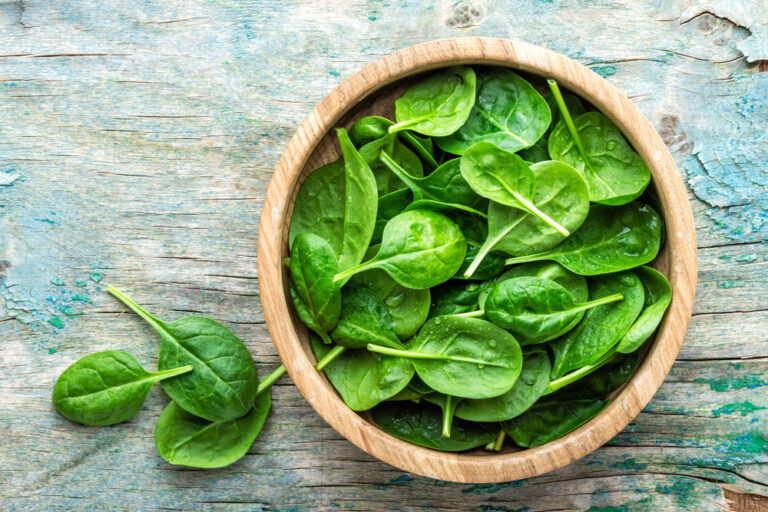Over the past decade, teeth whitening has exploded in popularity as a cosmetic treatment. With so many options now available – from professional in-office procedures to DIY whitening kits – sparkling white smiles are more achievable than ever. But there’s one rule those who undergo teeth whitening must follow: avoiding drinking water immediately after treatment. This may seem counterintuitive when we’re often told to drink more water for oral health. However, hydrating too soon after whitening can reduce its effectiveness. This article will take a deeper look at the reasons water is restricted, for how long, the science behind it, and tips for keeping your dazzling new smile.
How does teeth whitening work to lighten color?
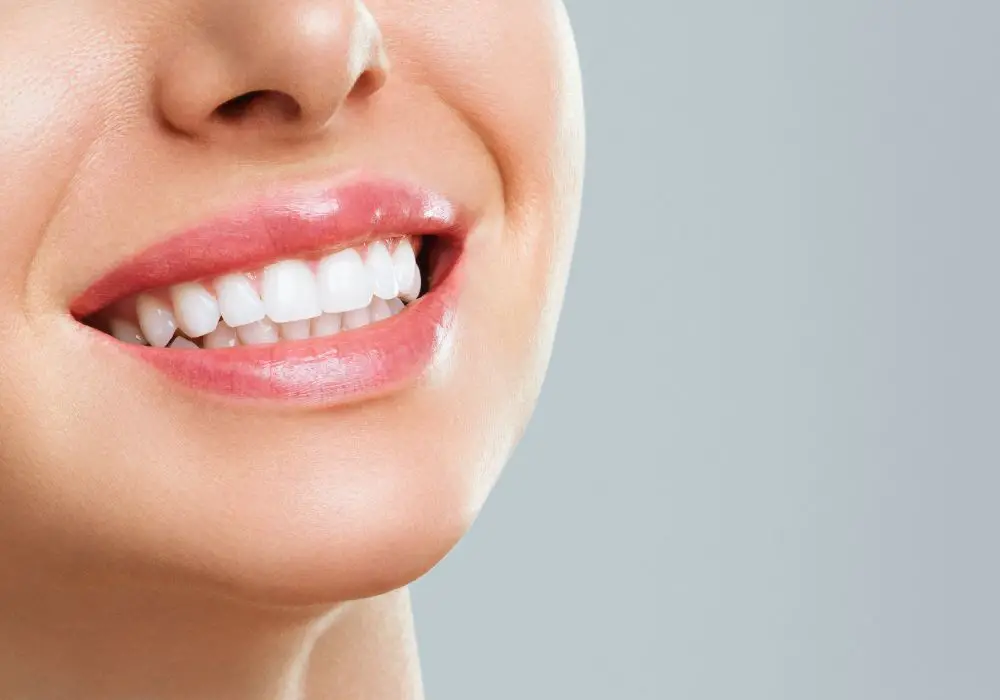
To understand why drinking water right after whitening is ill-advised, it helps to first examine what the process actually does to lift stains from teeth.
Whitening products utilize chemicals to penetrate the hard, outer enamel layer of the teeth and literally bleach away discoloration. Carbamide peroxide and hydrogen peroxide are the main active ingredients used in various concentrations:
- In-office bleaching – Dentist applies 25-35% hydrogen peroxide gel and activates with light or laser for 60-90 minutes.
- Take-home trays – Custom trays are filled with 10-22% carbamide peroxide gel and worn for 1-2 hours a day.
- Whitestrips – Elastomeric strips coated with 5-14% hydrogen peroxide worn for 30-60 minutes.
- Whitening toothpastes – Contain mild abrasives and up to 10% carbamide peroxide.
When peroxide interacts with organic pigments in enamel, the chemical bonds are broken, creating oxygen molecules that lift away stains. So avoiding water is about allowing these lightening reactions to occur unimpeded.
Why drinking water dilutes whitening treatment
After a teeth whitening procedure, remnants of the peroxide-based gel remain on the surface of your teeth. Swishing water or any other liquid around your mouth can dilute and wash away much of that whitening agent before it has finished working.
This is why experts recommend avoiding all foods and drinks for 45-60 minutes after whitening. The treatment is still actively penetrating and lightening during this time. Any hydration, even a small sip of water, reduces the gel’s potency and results.
Drinking dark staining beverages like coffee, tea, or juice immediately after whitening can be even worse. The pigments quickly seep into porous areas opened by the gel, dimming effects.
How dehydration assists the whitening process
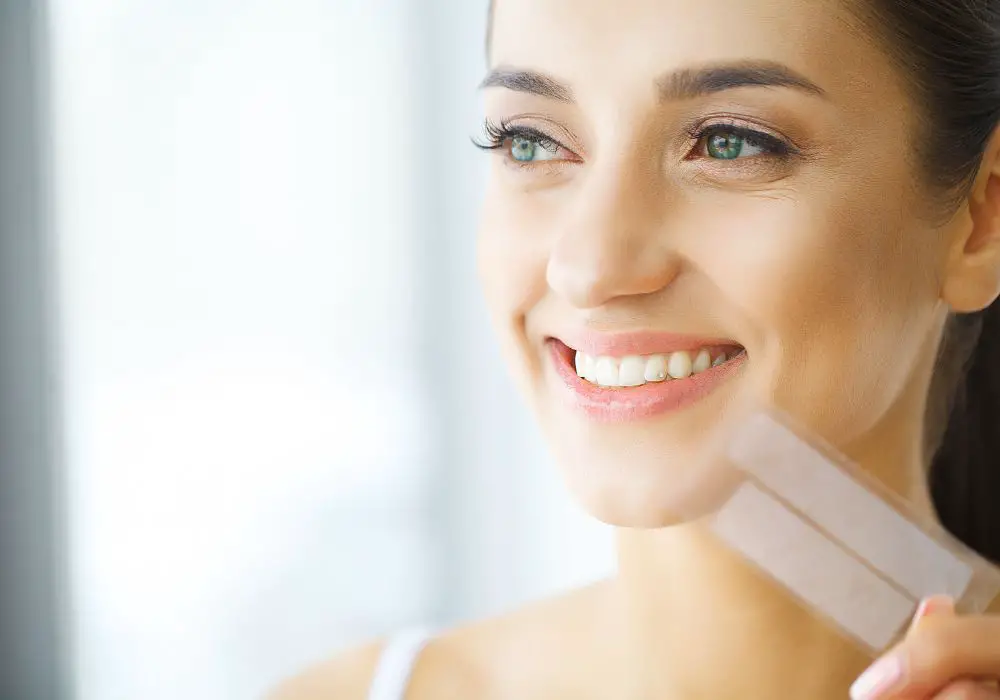
Professional whitening gels are formulated to dehydrate the teeth, which may sound uncomfortable but serves an important purpose.
When the enamel loses moisture, it causes the microscopic pores to open slightly, allowing the whitening gel to permeate more deeply into stains. This dehydration also allows the oxygen molecules released by the peroxide to penetrate deeper and lift away more stubborn discoloration.
But drinking water soon after treatment rehydrates the enamel, causing pores to tighten and inhibit penetration. It’s best to wait the full recommended time period before introducing any hydration. After that, small sips of water are preferable to large amounts that may swish over teeth.
Achieving the optimal pH balance for whitening
The effectiveness of peroxide gels also depends on an optimal pH balance being maintained on the enamel surface.
Whitening products are designed to lower the pH to an acidic level between pH 3 and pH 6 when applied. This acidity assists the gel in decomposing the organic compounds that cause stains and yellowing.
However, drinking water after whitening raises the pH closer to neutral. This disrupts the ideal acidic environment and can hinder the lightening process. That’s why even a quick rinse should be avoided after treatment.
Not just water – why all drinks should be limited after whitening
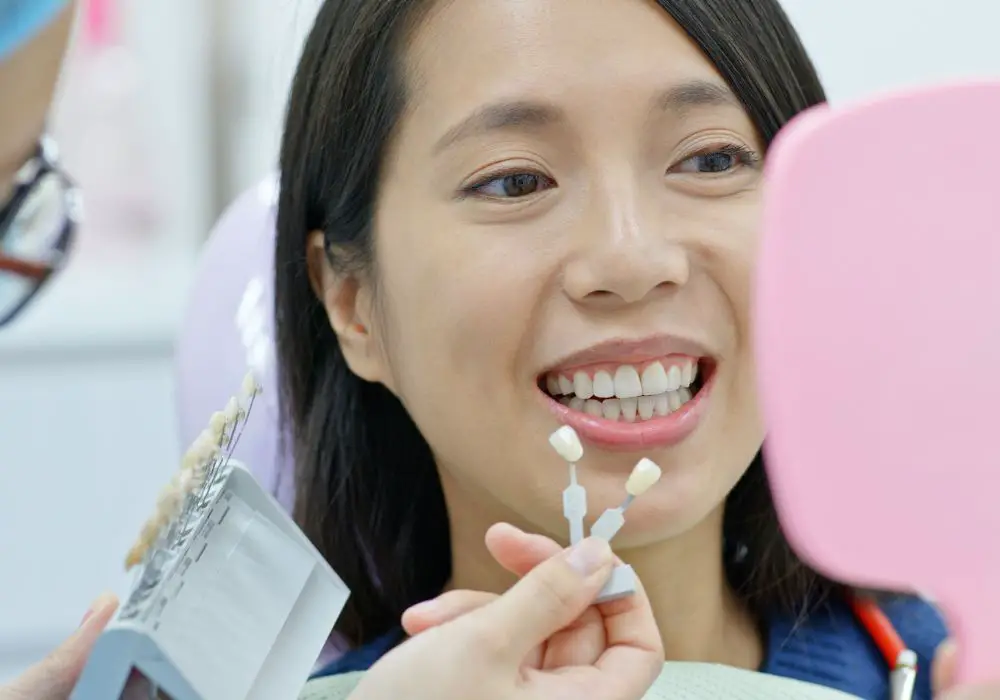
While plain water is clearly disruptive to whitening due its diluting and pH-altering effects, other drinks also need to be limited for the first day or two.
This includes pigmented staining beverages like coffee, tea, red wine, and dark sodas. The last things you want interacting with whitened enamel are dark liquids, so they should be avoided completely for 24-48 hours.
Fruit juices contain acids that can damage the freshly opened pores in enamel, so are also best limited. Go for clear sodas or ginger ale if you need something fizzy. Alcohol like vodka or gin can be okay in moderation, but avoid the mixers.
Milk is one drink that can be beneficial, as its proteins help strengthen and rebuild weakened areas of enamel after the intensive bleaching process.
The optimal time frames to avoid water and other drinks
Now that we’ve covered the reasons it’s detrimental to drink water and most other beverages soon after teeth whitening, what are the recommended timelines to wait?
- For in-office whitening procedures, avoid all drinks for 60 minutes after the appointment ends.
- With take-home whitening trays, don’t drink liquids for 60 minutes after removing the trays.
- When using whitening strips and paint products, wait at least 45 minutes after use before drinking.
- After brushing with whitening toothpaste, wait 30 minutes before consuming water and other drinks.
The first hour after professional whitening treatments is the most critical window for avoiding dilution. However, drinking dark staining beverages should be avoided for 3-5 days while the whitening sets.
After 24 hours, you can generally return to normal water and food consumption. Just be wary of heavily pigmented foods and drinks that could counteract your sparkling new smile.
What to drink instead of water after whitening
While plain bottled or tap water is out of the question immediately after whitening, there are some acceptable clear beverages that can be consumed in moderation after the initial waiting period:
- Clear soda – Sprite, ginger ale, lemon-lime sodas
- Diluted juice – Mix 50/50 with water
- Iced tea – Brewed light, avoid staining
- White wine – Chardonnay, Sauvignon Blanc
- Vodka – Combined with soda or tonic water
- Milk – The proteins help strengthen enamel
Sipping these minimally pigmented liquids for the first day is preferable over chugging water that will wash over the teeth. Just be sure to use a straw to minimize contact with front teeth.
Full hydration can be resumed after 24 hours. But continuing to limit staining drinks allows the whitening to set optimally into the enamel.
Helpful oral care and lifestyle tips post-whitening
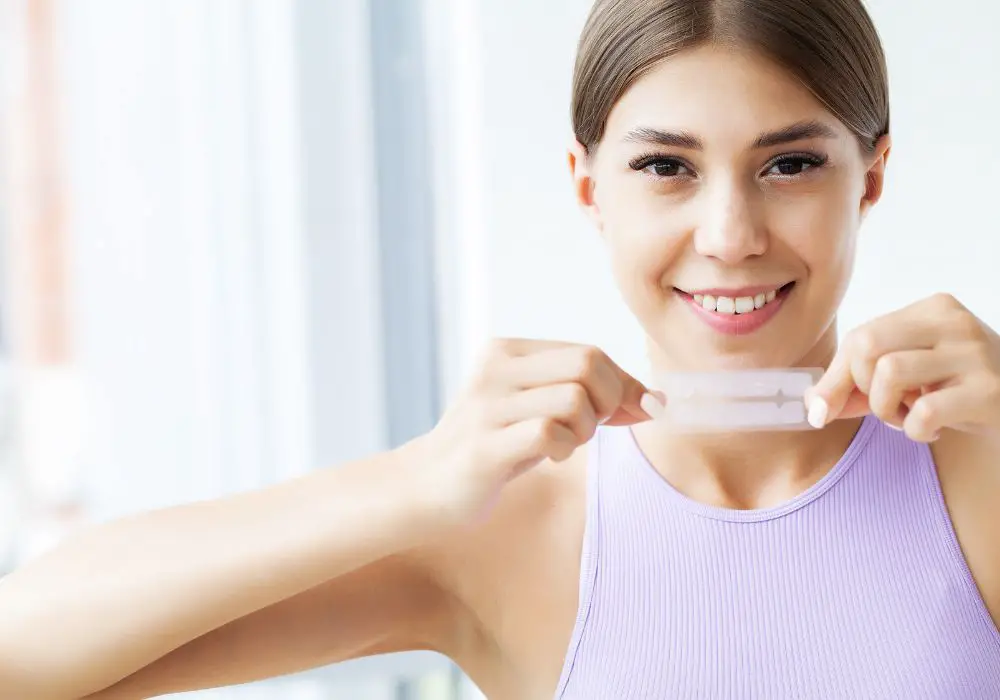
In addition to being careful what you drink after teeth whitening, there are some other oral care steps to take for the best results:
- Brush with a soft toothbrush and sensitive toothpaste the first few days
- Use lukewarm instead of cold water when rinsing
- Apply lip balm and mouth moisturizer to combat dryness
- Avoid smoking or using other tobacco products
- Floss lightly and take care around sensitive gums
- Drink staining beverages like coffee with a straw
- Wait 2 weeks until your next dental cleaning
- Use whitening mouthwash to boost results (after the first hour)
Making a conscious effort to minimize staining, protect enamel, and promote rehydration will help your whitened smile stay vibrant for as long as possible.
Frequently Asked Questions about drinking after teeth whitening
Why is it so bad to drink water versus other beverages?
Water specifically dilutes and washes away residual peroxide gels, raises pH, and rehydrates the teeth too quickly. Other pigmented drinks also stain, but water is the biggest threat to immediately diminishing results.
If I’m thirsty, can I swish and spit the water out?
It’s best to avoid putting any liquid in the mouth for 45-60 minutes, including swishing and spitting it back out. A tiny sip is better than swishing if you are very thirsty.
When can I drink coffee again after whitening?
Coffee and other dark staining beverages are best avoided for 3-5 days after whitening treatments. The pigments will quickly penetrate and restain lightened enamel.
Is it okay to use mouthwash right after whitening?
Using colored mouthwashes could stain, while even clear ones will dilute peroxide gels. Wait the full 45-60 minutes before using any oral rinse after whitening.
Why can I drink water sooner after using regular toothpaste?
Toothpastes contain far lower percentages of whitening agents than professional gels. They work more superficially than penetrating enamel, so less time is needed before drinking water.
Conclusion
Avoiding all beverages, especially water, for 45-60 minutes after teeth whitening is one of the most crucial steps for getting dramatically brighter results from the treatment. Dilution, pH levels, and rehydration are all deterrents to peroxide gels doing their job effectively. After the initial waiting period, sip conservatively on clear drinks and avoid staining beverages for several days as whitening sets in. Then you can finally enjoy showing off your gleaming white smile with full confidence!

